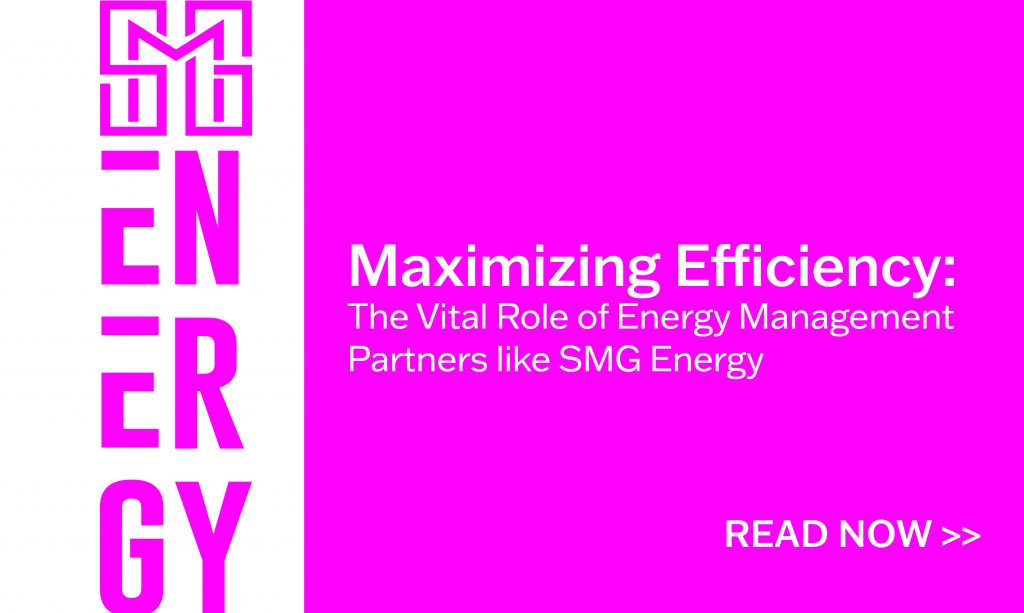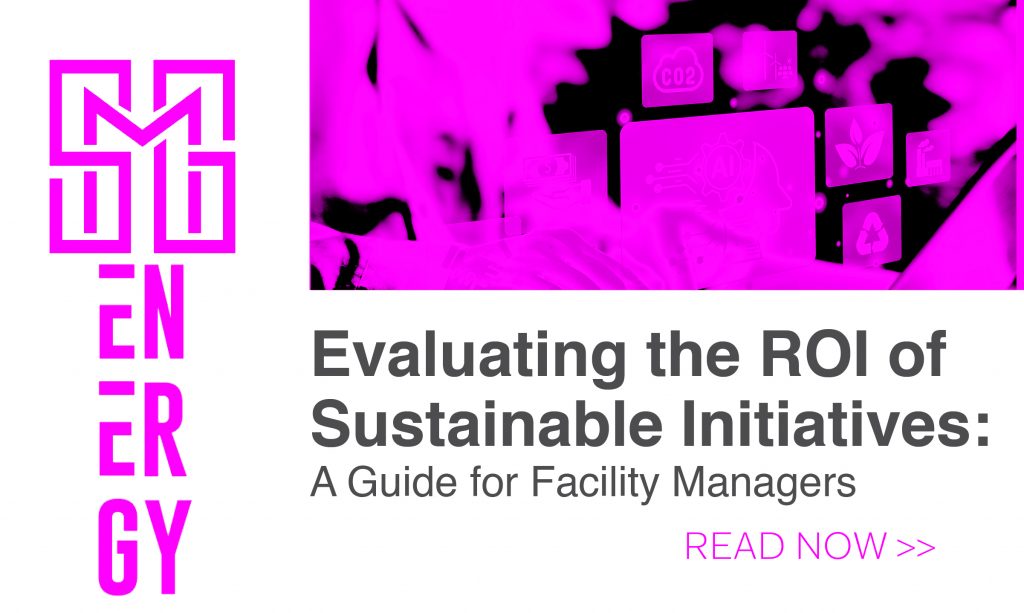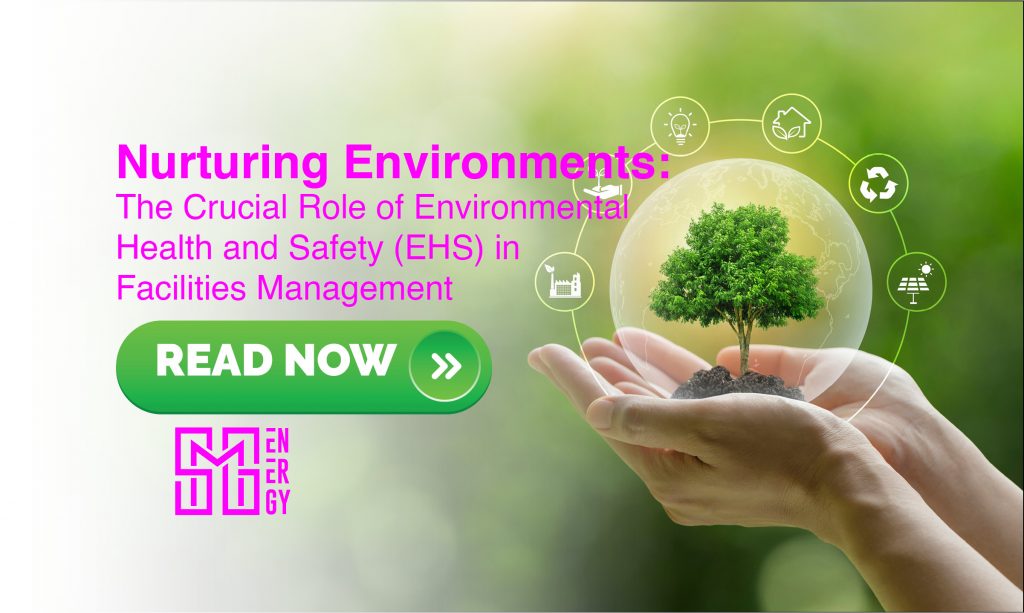In today’s world, sustainability and energy management have become more than just buzzwords – they’re integral to the long-term success of multi-site retailers. As the global community increasingly recognizes the importance of addressing climate change and environmental concerns, businesses are under growing pressure to adapt and demonstrate their commitment to sustainable practices. For multi-site retailers, managing energy consumption across a distributed portfolio is not just about doing the right thing for the planet; it’s also a strategy for unlocking a myriad of benefits.
Facility professionals play a pivotal role in implementing and promoting energy management and sustainability initiatives. They are the ones who can drive change and ensure that the entire organization reaps the rewards. In this blog, we’ll explore the ways in which facility professionals can understand and harness energy management strategies to optimize energy consumption, implement energy-efficient technologies, and promote sustainability across multiple retail locations. Additionally, we’ll introduce SMG Energy, a team of experts dedicated to helping solve the challenges faced by facility professionals in this area.
Understanding Energy Management Strategies
Effective energy management starts with understanding your current energy consumption patterns. Facility professionals must have a clear grasp of how energy is used across their retail portfolio. This means gathering data, monitoring energy consumption, and identifying areas where improvements can be made. Robust energy management strategies involve:
- Data Collection and Analysis: Facility professionals need to collect detailed data on energy consumption and demand. This data can help identify patterns and areas where energy is being wasted.
- Energy Audits: Regular energy audits help identify inefficiencies and areas for improvement. These audits can be done in-house or with the help of third-party experts like SMG Energy.
- Benchmarking: Comparing energy usage across different retail sites can reveal high performers and those in need of improvement. This benchmarking can drive competition and encourage energy-efficient practices.
- Goal Setting: Establishing energy reduction goals for each location can provide a clear target for improvement. Goals can be set based on reduction percentages or carbon emissions.
Implementing Energy Efficient Technologies
Once facility professionals have a comprehensive understanding of their energy consumption, they can start implementing energy-efficient technologies. These technologies can include:
- LED Lighting: Upgrading to LED lighting can reduce energy consumption and maintenance costs while improving the quality of lighting in retail spaces.
- HVAC System Upgrades: Optimizing heating, ventilation, and air conditioning systems can significantly impact energy use. Smart thermostats and energy-efficient HVAC equipment as well as HVAC Motor upgrades can make a difference.
- Renewable Energy Sources: Installing solar panels or utilizing wind power can reduce reliance on fossil fuels and decrease energy costs over time.
- Energy Management Systems: Implementing real-time energy monitoring and control systems, smart sensors allow facility professionals to react quickly to changes and minimize energy waste.
Promoting Sustainable Practices
Sustainability isn’t just about energy; it encompasses a broader range of practices that can positively impact the environment and align with a company’s ESG (Environmental, Social and Governance) initiatives. Facility professionals should also focus on:
- Waste Reduction: Encouraging recycling, composting, and waste reduction initiatives can decrease the environmental impact of a retail location.
- Water Conservation: Implementing water-saving technologies and promoting responsible water usage can reduce both costs and environmental impact.
- Green Building Practices: When constructing or renovating retail sites, facility professionals should consider sustainable building materials and designs.
- Community Engagement: Engaging with local communities through sustainability events and initiatives can enhance a retailer’s reputation and customer loyalty.
The Role of SMG Energy
In this challenging journey toward sustainability and efficient energy management, many facility professionals may wonder where to turn for expertise. That’s where SMG Energy comes in. As a team of dedicated experts in energy management and sustainability, SMG Energy provides a range of services, including:
- Energy Audits: Their audits can help identify areas for improvement and set a clear path for energy reduction.
- Energy Efficiency Solutions: SMG Energy offers tailored solutions, from lighting upgrades to HVAC system optimization, energy management systems (EMS) to reduce energy consumption.
- Renewable Energy Integration: They can help evaluate renewable energy sources into your portfolio, reducing carbon emissions and energy costs.
- Sustainability Consulting: SMG Energy’s expertise in sustainability practices can guide facility professionals in implementing eco-friendly initiatives.
In conclusion, energy management and sustainability initiatives are not only the right thing to do for the planet but also a strategic move for multi-site retailers. Facility professionals are at the forefront of this transformation, and by understanding and implementing energy management strategies and promoting sustainability, they can unlock a multitude of benefits, from cost savings to enhanced brand reputation. With the support of experts like SMG Energy, retailers can navigate this journey with confidence, knowing they have a partner dedicated to their success and a sustainable future for all.
Are you ready to take your multi-site retail portfolio to the next level in energy management and sustainability? Contact SMG Energy today to embark on a greener, more efficient future for your business.





